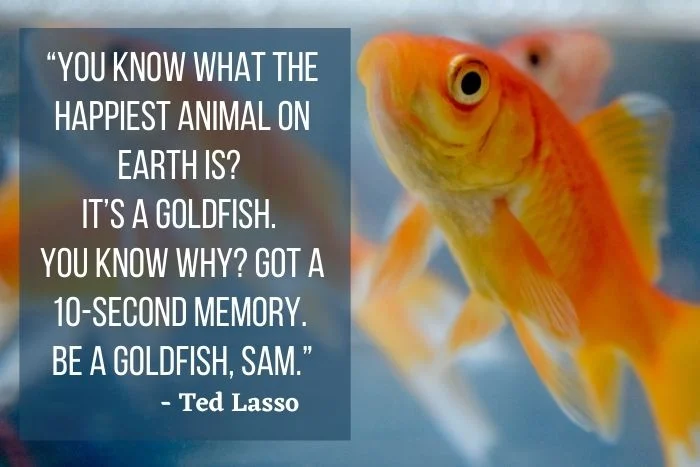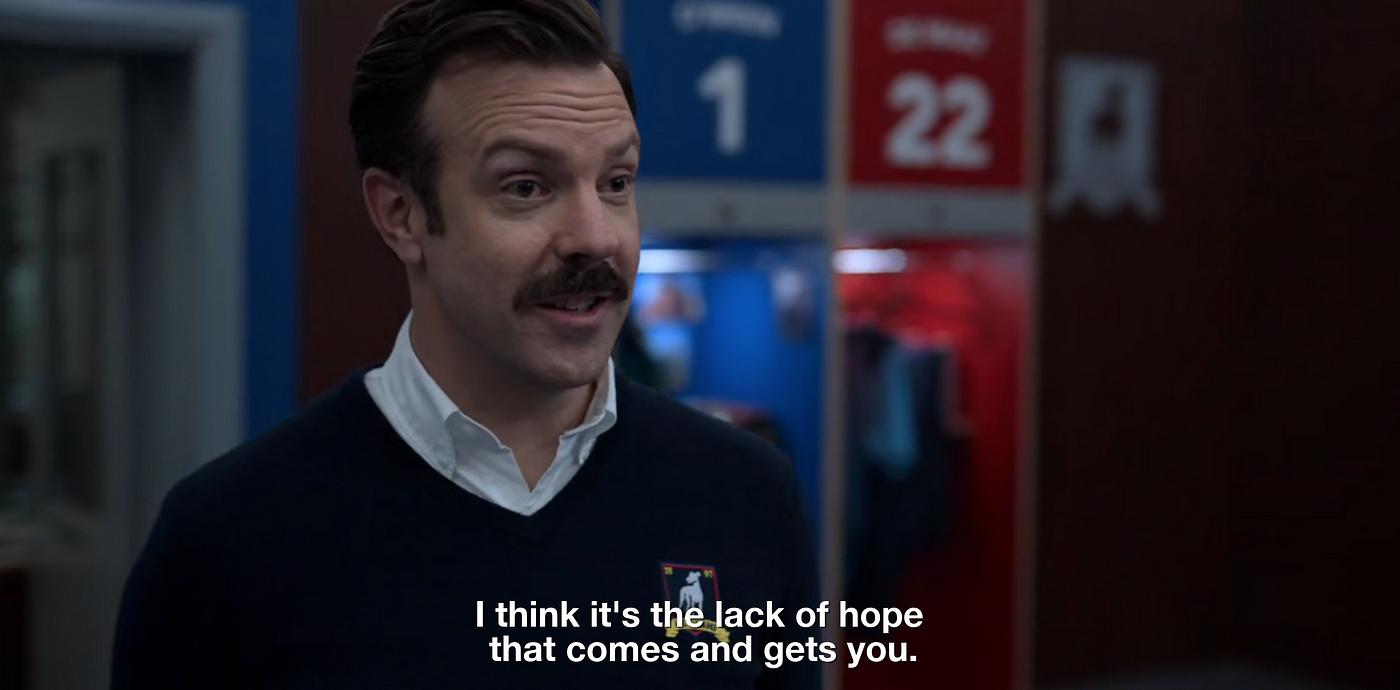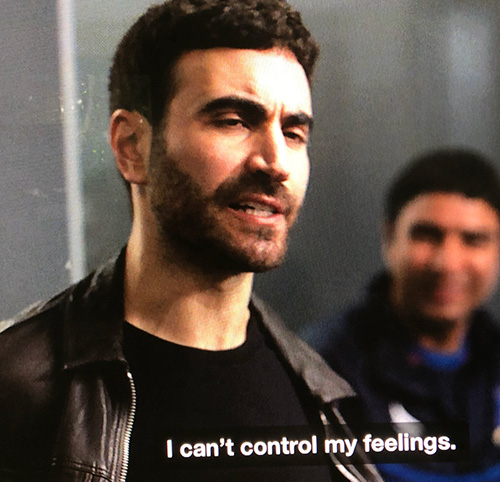This week's course readings covered the first half of Expectancy-Value theory, and specifically, the expectancy aspects of an individual's motivation. As we learned, expectancy can be further divided into efficacy expectations (or perceptions that one has the personal resources to execute an action) and outcome expectations (or perceptions that one's action or attempt will lead to the desired outcome). Efficacy expectations can also be understood as an individual's sense of self-efficacy, or their perception that they are able to successfully navigate a task, regardless of the challenges they must mitigate. To be clear, as I understand it, self-efficacy is distinct from similar words like competence, in that self-efficacy is not simply believe that oneself is good at a specific task. Rather, self-efficacy includes a belief in oneself and a personal, task-specific resilience that allows one to bounce back quickly from setbacks.
If you have ever watched the TV series Ted Lasso, you may initially think that relating the concept of self-efficacy to Ted's behavior and mindset is quite easy. Ted is full of self-efficacy! Everything he does seems to emerge from a sustained belief in himself and a complete lack of doubt in himself or his friends and team. However, Ted's self-efficacy and, in turn, motivation to coach, never seem to wane, which makes the concepts and their connection quite the difficult phenomena to understand in his context. In fact, the only period in which it seems that Ted is questioning his purpose or motivation to continue coaching professional English soccer is not after crushing failure, repeated insults about his performance, or even literal panic attacks (all of which could be considered antecedents leading to low self-efficacy). Rather, it is after successfully leading his team out of relegation, and to the top of the Premier League standings (when one's perceptions and displays of self-efficacy would presumably be at their highest) that Ted's motivation to stay seems to decrease.In some ways, I believe that Ted has developed something along the lines of an alternative dimension of learned helplessness, which refers to a perception of a lack of control and subsequently doing nothing to end one's suffering due to this perceived lack of control. Rather than being compelled towards helplessness and inactivity due to feeling out of control, though, Ted almost appears as though he is compelled towards positive belief and action in order to regain control. It may be my background in psychology and tendency to pathologize behavior, but considering the heavy subject of Ted's father's suicide while Ted was a young teenager and his wife divorcing him from another continent, it is possible that Ted has internalized and reinforced a lack of control from a young age. Thus, rather than agency (i.e., capacity to achieve/accomplish one's goals) and pathways (i.e., multiple controllable options to achieving goals) providing Ted with a sense of hope, I wonder if Ted has developed a compulsion towards hope and positive thinking to cope with his sense of lacking agency/control and to motivate himself to develop multiple pathways to accomplish his goals. However, this hypothesis does not necessarily explain why Ted's self-efficacy appears less related to his motivation than outlined in our readings, and I believe next week's readings about values may help to explain this disconnect.








